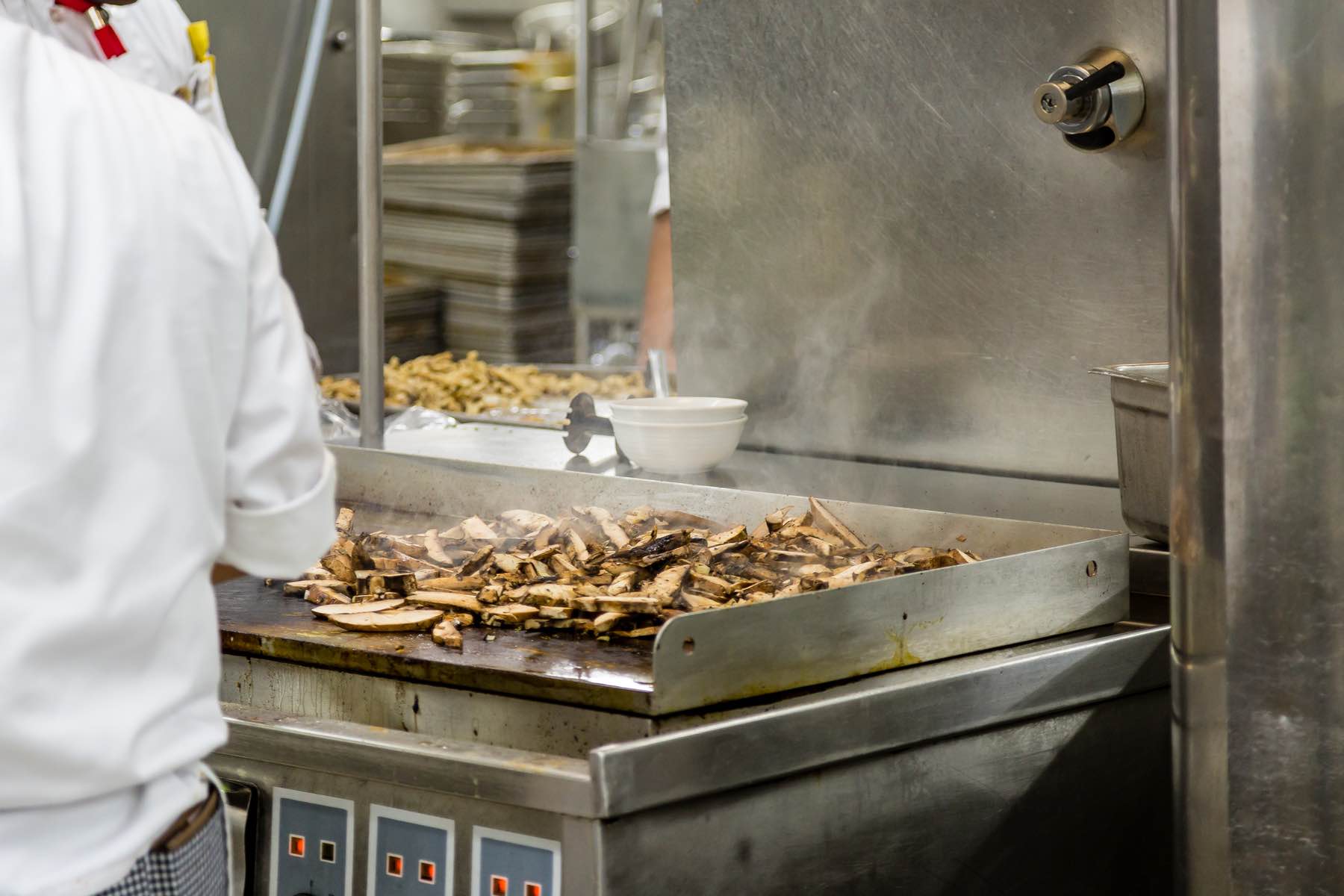Commercial griddles can provide many years of reliable cooking for restaurants and other businesses with a commercial kitchen. However, the maintenance of the griddle is a key to maintaining the longevity of this essential equipment. Dirty griddles create a higher risk for food safety because contaminants can get into the dishes unless the griddles are cleaned.
Even if the food isn’t contaminated, the taste can become compromised by the grease and debris left from previous meals. The risk of food-borne illness can be easily eliminated by following a relatively easy cleaning process. The commercial griddle is a workhorse in the kitchen, so it’s well worth maintaining a regular cleaning regimen to protect your investment.
Why Griddle Cleaning is Important
A regular cleaning maintenance schedule is the best method for protecting the health of your customers as well as the reputation of your business. Clean grills and griddles improve the taste of food to a noticeable degree. In addition, the heat from the surface will be evenly spread across the griddle when it’s clean.
The total effect is an extension of the lifespan of this central piece of commercial equipment or flat top grill. Maintenance is more than simply using a regular brush; it often requires commercial-grade cleaners, brushes and professional techniques. The sheer volume of the grease produced in a commercial kitchen makes it harder to clean than residential kitchen griddles.
Additionally, grease from these surfaces can easily get tracked across the floor, which creates health hazards including an increase in the risks of slip-and-fall accidents. Grease tracks can also encourage unsanitary conditions that attract insects and pests.
Cleaning Commercial Griddles
We understand that commercial-grade cleaning services require a high degree of confidence in the value of this process. This is an important investment, so it’s also critical to understand how it’s different from ordinary procedures for cleaning commercial griddles, otherwise known as flat top grills. The first thing to consider is the depth of the cleaning itself.
A good way to think of this is the same way a professional dental hygienist cleans the accumulated plaque from the teeth on a regular basis. This doesn’t replace daily brushing and flossing. In fact, both of these levels of cleaning are necessary. The commercial kitchen griddle cleaning regimen is similar; you need to have regular professional cleanings to supplement and support daily cleaning by the kitchen’s staff.
Cleaning Flat Top Grills: Hot Tips
Maintain the griddle by encouraging staff to clean it after every shift. This prevents grease from accumulating, which can carbonize into a thick layer that forms over time. Once this happens, it is much harder to remove. Store the supplies in a nearby place, and make sure everyone using the grill understands how to use them properly before leaving.
Check the manufacturer’s specifications on the commercial griddle to see if there are recommended cleaning agents to be used on the surface. Compliance will assist in the long-term care of the griddle. For example, you might need to use materials that are safe for the griddle surface. This might include non-chromium, stainless, chrome-plated or double-plated cleaners, for example.
Keep the following tips in mind when cleaning after shifts:
- Clean the griddle right after use while there is still heat, but always make sure that it’s warm. Some griddles have a preset temperature for cleaning, and others might have a recommended cleaning temperature mentioned in the manual. Remember that the griddle metal can expand and contract based on exposure to extreme temperatures. This is why you should never use ice to cool the surface; the extreme cold from the ice cubes can induce stress cracks, which will expand once the griddle is re-heated. Grease can spill into these cracks and damage the inside of the unit.
- Scrape any buildup of debris and food from the griddle using a rubber tool with heat-resistant properties. Always refer to the manufacturer’s instructions when using abrasive cleaners, cleaning solutions and other products. This will prevent damage. When in doubt, test a small area first.
- Loosen the carbonated substances and cooked food particles with a manufacturer-approved griddle brush or other cleaner. Use small circular motions.
- Clean the burner area and griddle surface before cleaning the front and sides with clean cloths. This will ensure that grease doesn’t spill onto the exterior surfaces.
- Rinse the griddle with low-pressure setting or a wet towel, and wipe away any residue. High pressure settings can damage equipment.
- Use a clean towel dipped in cooking oil, and rub the steel surfaces to prevent rust.
Maintaining the Griddle Over Time
Daily cleanings are helpful in preventing the griddle from depreciating faster than usual. However, regular professional cleanings will maximize the performance of the cooking system.
To get the most out of the griddle, make sure that you perform both forms of cleaning during the recommended intervals:
- Daily: Always warm the commercial griddle before cleaning, or clean it right after use while heat is still present. Do an extra cleaning after heavy use. Use a manufacturer-approved griddle cleaning agent. Sanitize waste containers after each shift. Don’t use bleach or harsh chemicals on surfaces made from chrome.
- Weekly: Every week, you should unplug the griddle and let it cool down before cleaning. Use a clean cloth and non-abrasive cleaning agent to wipe down the griddle. Rinse completely and dry all parts.
- Monthly: Every month, the thermostat should be checked and re-calibrated if needed. Professional cleaning companies can also perform this task.
- Quarterly: Checking for cracks and other signs of stress damage should be done periodically. This will prevent grease from dripping into the interior portions of the system.
- Bi-annual: Professional technicians should perform a visual inspection for the griddle. The pressure gauges or amp readings should be inspected to ensure proper functioning.
Make these cleaning procedures into a routine, and ensure that your kitchen staff follows each step correctly. This will prolong the useful life of the griddle. It will also improve the quality of the food because the taste of food is positively affected by a clean griddle surface. The cleaning regimen will protect your cooking equipment while ensuring that it lasts for a long time.




